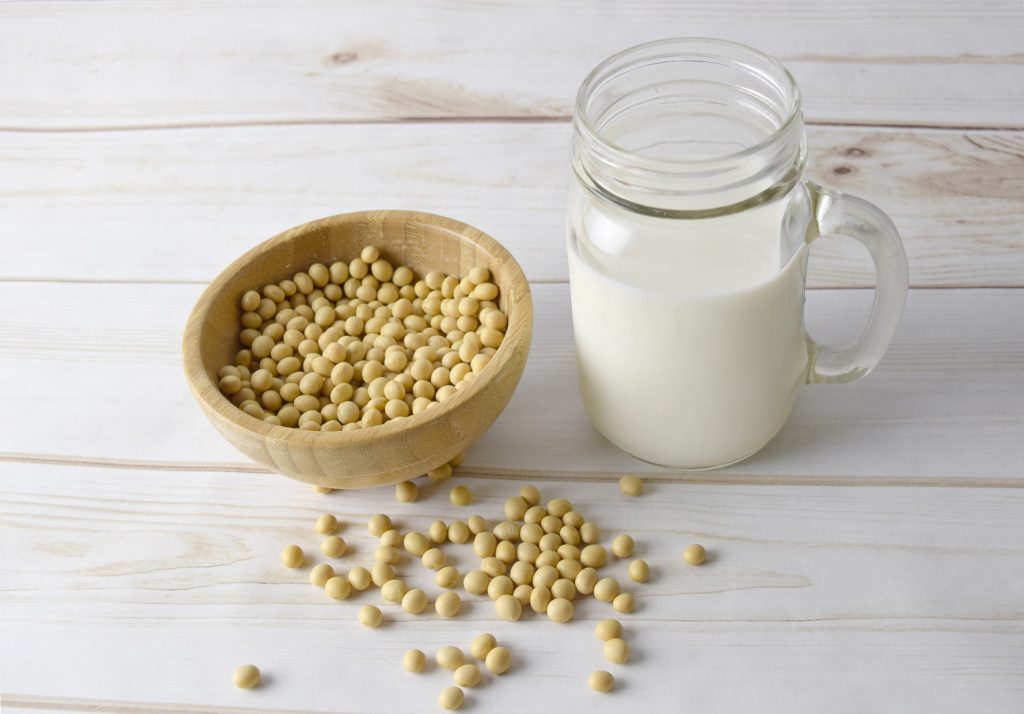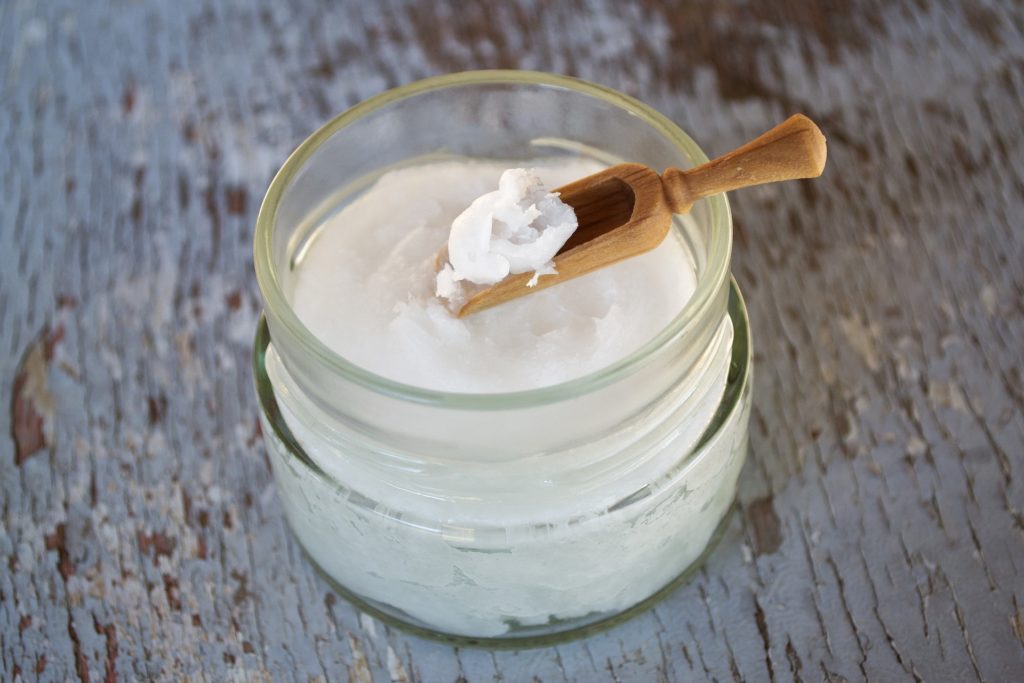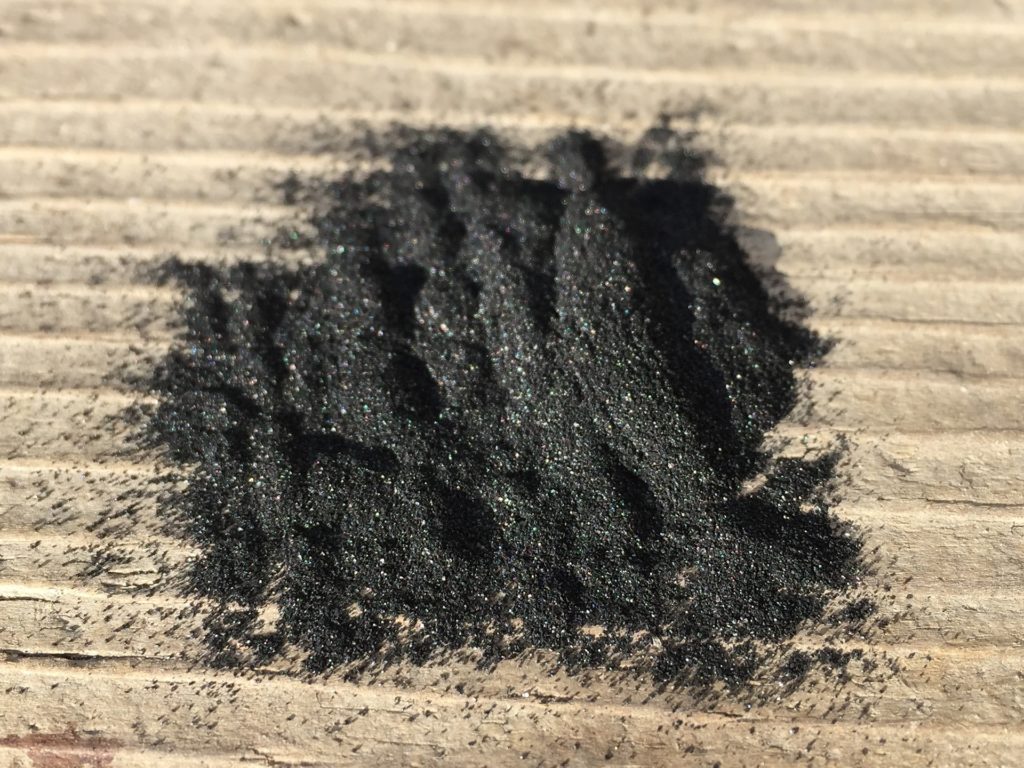Health communication has changed a lot over the years. We’re bombarded with information about healthy foods, from the latest ‘superfood’ trends to the easiest way to tone up and trim down. While social media is a really easy way to access health information, how do we know if the information is correct?
Well, grab a kombucha and read on. We’ve compiled the most hotly debated ‘superfoods’ out there – and then applied a research lens.
However, if you have any specific questions, it’s best to go to an Accredited Practicing Dietitian (APD). Please note the information here may not be suitable for you.

Plant-based milks like soy (pictured) are a good alternative to dairy. But if you do choose to opt for plant-based milks, make sure you’re still getting the nutrients your body needs.
Dairy milk vs. alternative milks
You’re spoilt for choice when you order your coffee these days. Do you want skinny, lactose-free, soy, almond, oat, rice or coconut? Dairy and lactose-free milk alternatives are multiplying. And their expansion into cafés and onto supermarket shelves suggest people are embracing them. What exactly are the pros and cons of shifting to plant-based milk?
Let’s look at cow’s milk first. You know it. Most of us have grown up drinking it. It’s a good source of a range of essential nutrients including calcium, protein, iodine, vitamin A, vitamin D, riboflavin, vitamin B12 and zinc. But some people avoid dairy. Many people do so in the hope of relieving adverse gastrointestinal symptoms such as cramps, bloating or wind. Others dislike the taste or think it’s fattening. Environmental and ethical factors play a part for some. If you’re opting for a non-dairy option, make sure you’re still getting all the nutrients your body needs.
Soy, almond or oat?
What’s in these plant-based milk alternatives? Many are mostly water, a small amount of the plant-based ingredient – almonds, oats, rice, coconut or soybeans – and a small amount of added fat. Some also contain emulsifiers and gums to help achieve a certain texture and consistency.
The protein and fat content of soy milk is the most similar to cow’s milk. Many other plant-milk alternatives such as rice, almond, oat and coconut are relatively lower in protein and contain varying amounts and types of fat. All plant-based milks naturally contain very little calcium. They need to be calcium-fortified to provide similar amounts to cow’s milk. Calcium is an important bone-building nutrient and dairy foods (milk, yoghurt and cheese) are the predominant source of calcium in the Australian diet. Many Australians do not get enough calcium, particularly teenagers, post-menopausal women and older adults, who have higher requirements. If you are swapping cow’s milk for a plant-based alternative look for a product that contains at least 100 mg/100 mL of calcium.
Some plant-based milks are also fortified with other nutrients found in cow’s milk like vitamins B12, A and D. But many are not. Vitamin B12 is a particularly important nutrient to consider if following a vegan diet as it can only be sourced from animal foods or fortified foods.
If you are concerned about whether you are getting enough calcium, protein or other vitamins and minerals from your milk, speak to an APD.

Most health-based recipes call for coconut oil. But is it worth it?
Coconut oil
Coconut oil is hyped up as another ‘superfood’. It’s hailed for its ability in aiding weight loss and has antimicrobial and antiviral properties. But that’s not true.
Coconut oil is extracted from coconut flesh. It leaves behind the fibre, carbohydrates and protein found in said flesh. Like other oils, the extracted oil is pure fat. As we know, there are many types of fats but we’ll simplify them to saturated fats (unhealthy) and unsaturated fats (healthy). Saturated fats tend to increase unhealthy cholesterol. Here’s the kicker – coconut oil has a massive 88 per cent saturated fat content. Like all fats, it’s also extremely energy-dense – one tablespoon has 740 kJ!
Coconut or olive oil?
But coconut oil is high in one kind of saturated fatty acid (AKA the building blocks of saturated fats) – lauric acid. It’s characterised as having a more favourable effect on total HDL cholesterol (good cholesterol) than other fatty acids. But the overall effect of fatty acid mixtures is what is important here. Past research results have shown that while coconut oil increases HDL cholesterol, it also increases bad cholesterol. If you switch to coconut oil from a healthier oil, you may increase your risk of coronary heart disease.
To add insult to injury, coconut oil provides no vitamins or polyphenols (compounds found in plant-based foods). If you’re looking for a healthy fat, you can’t go past other vegetable oils like olive, avocado or canola oil. While they have the same energy content as coconut oil, these have a high content of monounsaturated and polyunsaturated fatty acids.

The science is weak when it comes to apple cider vinegar
Apple cider vinegar
This vinegar is apparently the supertonic to all your problems. Want to lose weight? Take a shot of apple cider vinegar (ACV). What about your heart health? Take a shot. Eliminating dandruff? Take a shot. ACV is essentially fermented apple juice. The bacteria in the liquid produces acetic acid and is considered a probiotic (a live microorganism with health benefits).
But what is the truth? When it comes to ACV, the science doesn’t live up to the hype. ACV has a small amount of antioxidants and amino acids. But it’s definitely not enough to eliminate dandruff or fix cardiovascular issues.
What about weight loss?
But what about as a weight loss supplement? There are a small number of studies which support those benefits, including a 2018 Iranian study using homemade ACV. The overweight test group participants drank 15 ml of ACV with lunch and with dinner, which is the equivalent of 1.5 tablespoons. They also had a daily diet 250 calories lower than their energy requirement. The overweight control group were only on the negative 250 calorie diet. The results found those on ACV lost an average of 4 kg over the three month study period. Meanwhile,the control group only lost 2.3 kg. The study also found that ACV suppressed appetite in this unblinded study. But don’t lose your gym membership just yet – the science behind it is still pretty weak. It’s also important to note the participants ate a low-calorie diet and exercised.
Regarding its probiotic benefits, this would work along the same way as kombucha and other fermented beverages. To reap the benefits of probiotics, you’d have to take them continuously. This is a bit dicey with ACV as prolonged use can erode the enamel on your teeth. If you want to improve your gut health, fibre is your best friend. Fibre provides food for the bacteria in your gut. This creates an environment that can enhance immune response and inhibit gut inflammation.
Healthy bacteria can also reduce the growth of harmful bacteria. They can also provide protection against infections from pathogenic microbes such as Clostridium difficile and pathogenic strains of Escherichia coli (E. coli).
The moral of the story is ACV is not the supertonic it’s touted to be. Have some healthy scepticism if you see it in drinks.

Charcoal powder? A huge nope.
Charcoal powder
Just kidding. Don’t bother. Nothing can scientifically back all of its purported benefits so leave this one on the shelf.
The last word
Our bodies are complex and need a range of different nutrients for optimal health. That’s why we need to look at our whole diet. This means eating a balanced diet of whole foods, healthy fats, fruits, vegetables, lean meats, legumes, nuts, fish and reduced-fat dairy. After the age of about six months, one natural ‘superfood’ does not provide us with all the nutrients we need. And as we’ve seen from the science, no one natural ‘superfood’ can.


16th October 2020 at 1:36 pm
I was expecting an article with much greater scientific analysis and related information.
Disappointing. Left with a ‘why did I bother’ feeling.
23rd March 2020 at 11:29 am
expected a much more scientific analysis! Composition is only of limited significance..bioavailability and efficacy are critical for positive health effects. Cmon guys you can do better!!
15th March 2020 at 10:52 am
This article was very disappointing and not worth the time it took to read it! Where is the rigour?
14th March 2020 at 10:29 am
interestingly I watched Dr Mike Mosely program the other night and he suggested that coconut oil was in fact good for you. Trust me I’m a Doctor?
13th March 2020 at 12:28 pm
We are omnivores. Eat everything but Sugar